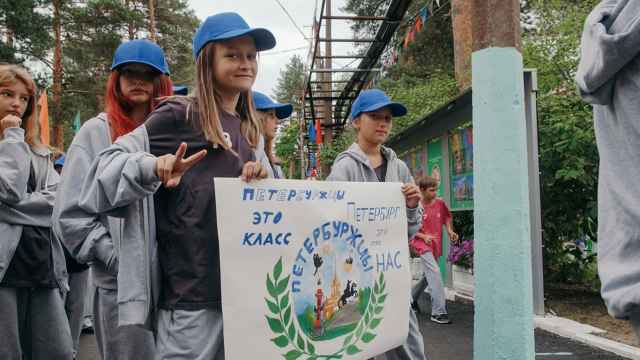
Alexander Ksenofontov
Senior Lawyer
LEVINE Bridge Law Firm
We will not undertake to predict exactly what changes will take place in Russian labor law in the near future; however, in this brief overview we shall attempt to identify certain trends that have recently emerged with regards to Russian labor law.
Business representatives express concern about the allegedly excessive level of protection of worker's interests that is currently covered under Russian labor law. At the same time what they are seeking is to weaken guarantees in the individual rights of workers, while providing greater flexibility on the Russian labor market.
In this regard, representatives suggest a variety of changes, most significant of which are the following:
- Remove some of the excess, according to businessmen, restrictions for the conclusion of fixed-term employment contracts with employees, providing the possibility of concluding such contracts with young professionals and older people, as well as employees of small businesses employing up to 100 people.
- Authorize a trial period when hiring young professionals.
- Establish the possibility of amending the terms of the labor contract on the initiative of the employer, for economic reasons that are beyond the control of the employer, which could include a significant change in the economic conditions on the market for goods and services, including any reduction in demand.
- Include the definition of "remote employment" in the labor legislation, incorporating into it not only domestic work, but also any other work performed remotely outside the premises of the employer; and provide special regulations for remote employment.
The proposals of the business community were drawn up on behalf of the government in consideration for specialized Russian ministries, including the Health and Social Development Ministry. The government will study the feasibility of incorporating these changes into the labor legislation. It is to be expected that the results of this work will be a draft law on amendments to the Labor Code. Accordingly, the proposals of the business community may be taken into account to further develop other, more flexible, forms of employment, including the concept of remote employment.
From the perspective of the government, and specifically the Health and Social Development Ministry, it may have to tighten administrative responsibility for any violation of labor laws. The ministry has prepared a bill, which would include plans to introduce fines ranging from 60,000 rubles ($2,114) to 800,000 rubles for employers who violate labor laws, whereas employers can currently be fined only up to 50,000 rubles for violations. If the bill passes, fines applied to the employer's officials will also increase, the amount in some cases ranging from 10,000 rubles to 50,000 rubles. In addition, the bill stipulates new types of administrative offences in the field of labor relations, notably:
- breaching the terms of wage payment;
- breaching the rules governing termination of employment contracts;
- breaching the rules governing concluding an employment contract in writing;
- breaching the rules governing overtime work;
- breaching the rules governing paid annual leave. A number of bills on amendments and additions to labor law are already being considered by the State Duma. So, in the near future the law may allow for an employer to transfer an employee to another position without consent for a period of up to one month in the event of idle time as a consequence of extraordinary circumstances on the one hand, and as a consequence of economic, technical or organizational reasons on the other hand. This will also allow for the employee to be absent from the workplace during periods of idle time, if the employer is unable to temporarily transfer the employee to another job. However, employees will be obligated to inform the employer of their absence for the period of idle time and inform the employer of their location during this period.
In addition, legislation is pending on the permission of strikes recognizing the rights of trade unions and support of the legitimate demands of other strikers, as well as criticism of social and economic policies of state and local government agencies or, in other words, the so-called "solidarity strike." The State Duma is simultaneously working to improve the regulation of social partnerships on the basis of decisions of the International Labor Organization, as well as to improve the procedures for considering and settling collective labor disputes.
Among other things, it is noteworthy that in the very near future there very well may be special rules governing "temporary labor" (personnel from employment agencies), including rules on the allocation of responsibilities to ensure proper working conditions between the employment agency providing personnel and the employers using employment agencies, as well as rules on the processing of the personal data of employees from employment agencies.
Thus, it is apparent that efforts to improve labor law are constant and will continue in the future.
A Message from The Moscow Times:
Dear readers,
We are facing unprecedented challenges. Russia's Prosecutor General's Office has designated The Moscow Times as an "undesirable" organization, criminalizing our work and putting our staff at risk of prosecution. This follows our earlier unjust labeling as a "foreign agent."
These actions are direct attempts to silence independent journalism in Russia. The authorities claim our work "discredits the decisions of the Russian leadership." We see things differently: we strive to provide accurate, unbiased reporting on Russia.
We, the journalists of The Moscow Times, refuse to be silenced. But to continue our work, we need your help.
Your support, no matter how small, makes a world of difference. If you can, please support us monthly starting from just $2. It's quick to set up, and every contribution makes a significant impact.
By supporting The Moscow Times, you're defending open, independent journalism in the face of repression. Thank you for standing with us.
Remind me later.





